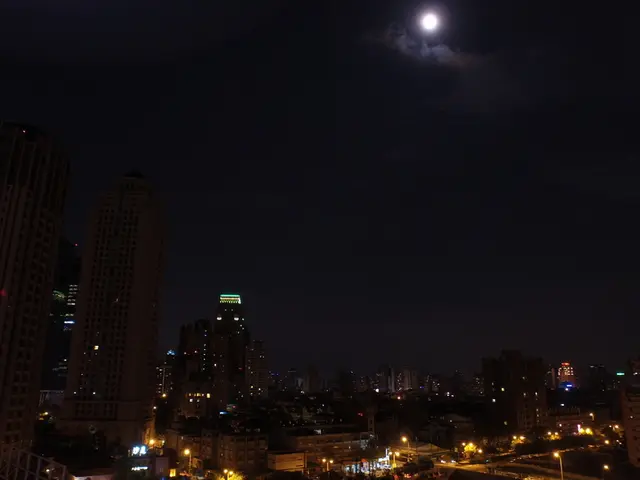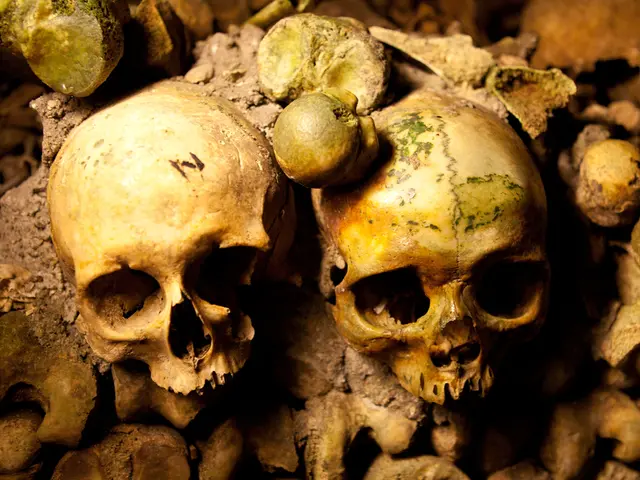LSD demonstrates potential in alleviating anxiety, according to pharmaceutical research findings
In a groundbreaking study, pharmaceutical company MindMed has demonstrated that LSD, a psychedelic drug that has been banned in the US for over half a century, can effectively treat generalized anxiety disorder (GAD). The study, published by the Journal of the American Medical Association, tested four doses of LSD on nearly 200 patients, with the main aim of finding the optimal dose.
The most effective dose, 100 micrograms, showed promising results. After 12 weeks, 65% of patients continued to show benefits, and nearly 50% were in remission. The benefits of LSD treatment lasted as long as three months, according to the study.
Interestingly, the two highest doses of LSD resulted in significantly lower anxiety scores at four weeks compared to placebo or lower doses. Patients who received placebo also improved, but their changes were less than half the size of those receiving the real drug.
The study took a simpler approach, with patients receiving a single dose of LSD under professional supervision but without therapy. This is a departure from previous research, which focused on lesser-known hallucinogens like MDMA and psilocybin to avoid LSD's historic controversies.
However, the study did have its challenges. There were issues with patient guessing whether they received LSD or a placebo, and a significant portion of patients dropped out early. Moreover, the paper does not detail how patients were prepared for the LSD experience or what sort of follow-up they received, which is crucial to understanding the research.
Despite these challenges, the potential of using LSD as a medical treatment isn't new. More than 1,000 papers were published documenting its use in the 1950s and 1960s for treating alcohol addiction, depression, and other conditions. However, a federal backlash halted US research in the late 1960s.
Now, MindMed is conducting large, late-stage trials to track patients over a longer period of time and submit for FDA approval. The FDA has designated psilocybin, MDMA, and now LSD as potential "breakthrough" therapies based on early results.
The long-lasting effect of LSD treatment is quite significant, but it's possible that some people may need retreatment. The possibility of using LSD as a medical treatment is gaining traction, with psychedelic research rebounding. Conferences, documentaries, books, and medical journals are exploring their potential for conditions like depression, anxiety, and post-traumatic stress disorder.
Even Health Secretary Robert F. Kennedy Jr. and other administration officials have expressed interest in psychedelic therapy, suggesting it could receive fast-track review for veterans and others suffering psychological wounds. As research continues, the future of LSD as a potential treatment for GAD and other conditions remains promising.
Read also:
- Nightly sweat episodes linked to GERD: Crucial insights explained
- Antitussives: List of Examples, Functions, Adverse Reactions, and Additional Details
- Asthma Diagnosis: Exploring FeNO Tests and Related Treatments
- Unfortunate Financial Disarray for a Family from California After an Expensive Emergency Room Visit with Their Burned Infant








